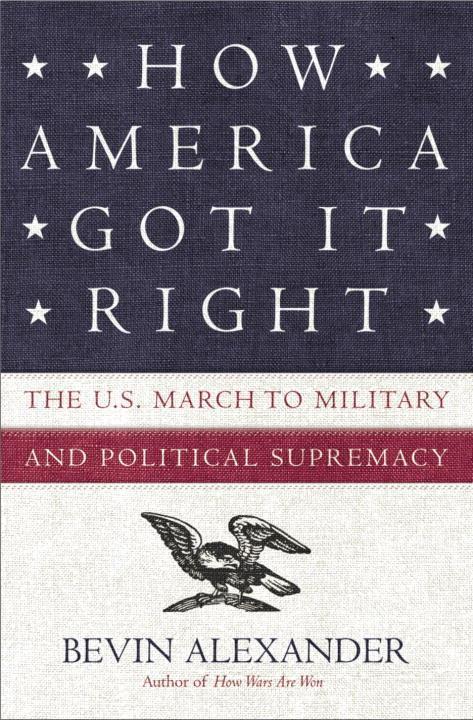
How America Got It Right
The U. S. March to Military and Political Supremacy
کتاب های مرتبط
- اطلاعات
- نقد و بررسی
- دیدگاه کاربران
نقد و بررسی

June 6, 2005
In this polemical, sometimes informative overview of U.S. military and diplomatic history from the French and Indian Wars to the war in Iraq, westward expansion was inevitable; the Mexican War was wise; slavery "did deflect and distort the dream," but the Civil War need not have been fought (though it did professionalize the army). After WWI "the United States took over responsibility from Britain for governing the world's oceans"; this expanded navy turned out to be crucial for winning WWII. Almost all nonexperts will learn something from Alexander's (How Wars Are Won
) brisk and detailed accounts of 20th-century battles and diplomatic controversies, and his expertise on postwar China and Korea provides support for surprising arguments. As he approaches the present day, however, he sounds less sure than merely cocksure: "the United States had to go into Iraq," he writes, because "it set out to neutralize terrorism and tyrants." Readers who already think so will enjoy the book. Agent, Agnes Birnbaum with Bleecker Street Associates
.

July 1, 2005
This is a feel-good book for those who are convinced the U.S. role in world affairs has been consistently beneficial. Military historian Alexander's survey of more than two centuries of America's interactions with the world rejects the notion of the U.S. as an imperial power. Although he acknowledges major mistakes (slavery, Vietnam), Alexander asserts that America has never sought to conquer foreign peoples (that, of course, would be disputed by the Lakota, Cheyenne, and Mexicans of the Southwest). Americans, Alexander argues, have viewed themselves as an island nation protected by vast oceans that allowed us to develop our democratic institutions while avoiding the chronic warfare experienced by European states. In the twentieth century, that benign isolation was no longer tenable. Thus, America reluctantly became a world power, but with the primary goal of protecting its own liberty. In doing so, we have generally advanced the cause of liberty around the world. One need not be an America basher to see this work as a bit one-sided.(Reprinted with permission of Booklist, copyright 2005, American Library Association.)

























دیدگاه کاربران